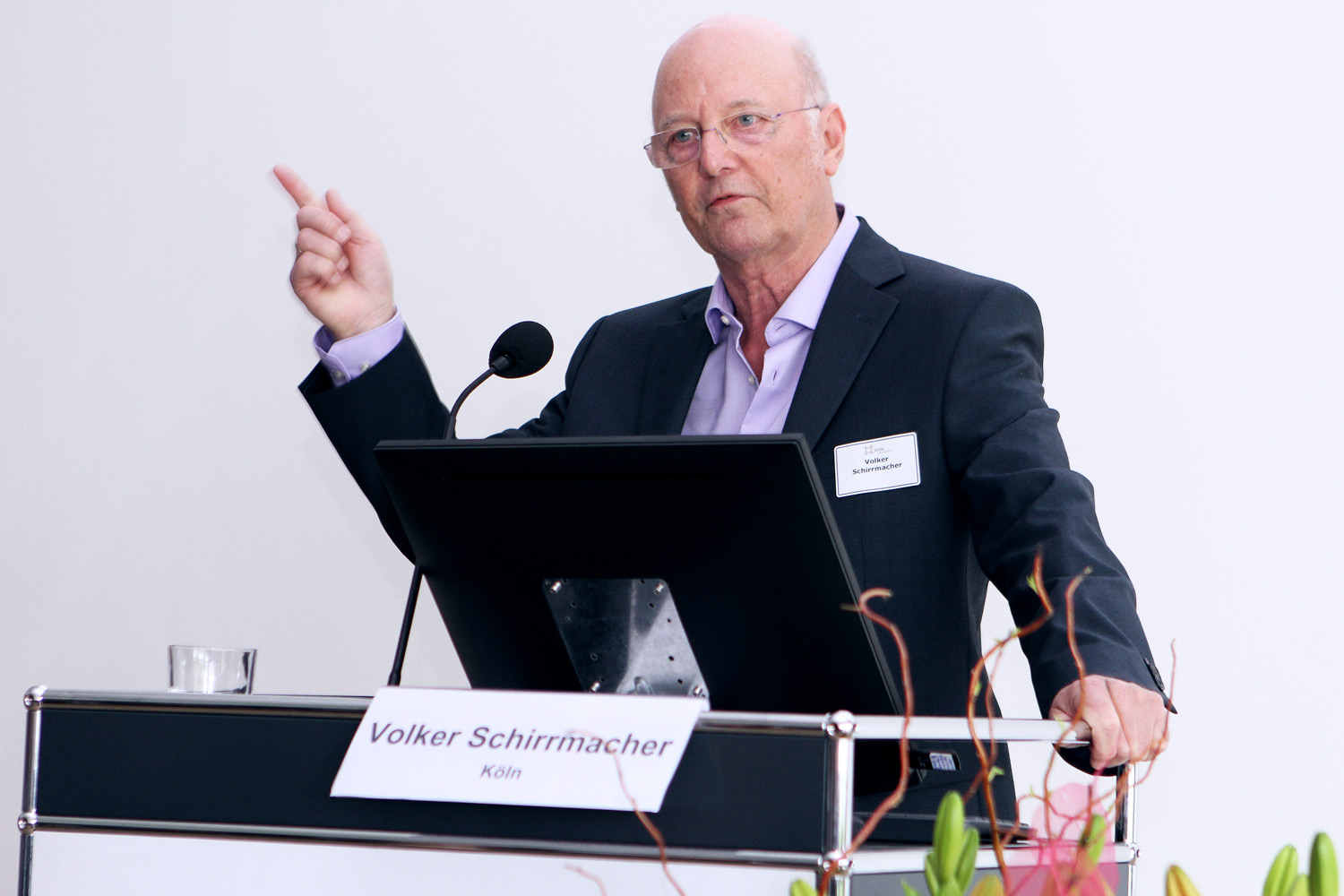Professor Volker Schirrmacher from the Cologne IOZK will open the conference at Kiel University with his lecture on research into oncolytic viruses in the context of individual cancer immunotherapy.
Kiel Oncology Network organizes nationwide symposium on tumor immunology at the CAU
On April 26, 2019, around 80 cancer researchers from all over Germany will meet at the 3rd Kiel Oncology Network Symposium at the Kiel Science Center. The topic of this year's event is tumor immunology and the associated opportunities and challenges for future immunotherapies.
Research into immunological processes involved in the defense against cancer cells is at the heart of this area of oncology. The resulting therapeutic approaches aim to trigger certain immune responses and thus cause the death of tumor cells or inhibit tumor growth. The Kiel Oncology Network (KON), an association of oncologists within the framework of the Kiel Life Science (KLS) research focus at Kiel University (CAU), will comprehensively present the activities and focal points of Kiel's cancer research in this field at the conference. The focus will be on the three main aspects of diagnostics, therapy concepts and the diverse strategies with which tumors can circumvent immune reactions. In this forum, scientists will report on their current research work in over 20 presentations.
Promising approaches for future forms of treatment
The organizer of the symposium is Professor Susanne Sebens from the Institute for Experimental Tumor Research at the Faculty of Medicine at Kiel University and the University Medical Center Schleswig-Holstein (UKSH), who, together with her colleagues, is driving forward the Kiel Cancer Research Network KON. "In tumor immunology, there has been an immense gain in knowledge in recent years, which has already improved the treatment of many types of cancer," emphasizes Sebens. "But we also hope that our research will lead to decisive therapeutic advances in the future for cancers that cannot yet be treated satisfactorily," continued Sebens.
One example of the great potential of tumor immunology research lies in the further improvement of so-called antibody therapy. Cancer researchers in Kiel and elsewhere are developing certain antibodies with which cell-killing substances can be specifically introduced into tumor cells in order to combat them. Research into certain viruses that can specifically attack and kill cancer cells also opens up promising possibilities for combination with immunotherapy approaches. "Such oncolytic viruses have the ability to selectively infect tumor cells and destroy them in such a way that an immune response directed against the tumor is generated," emphasizes Professor Volker Schirrmacher from the Immuno-Oncology Center Cologne (IOZK), who is making a key contribution to the symposium as one of the plenary speakers. "We use such special features in Cologne for individualized cancer immunotherapy. This is characterized by only minor side effects," continued Schirrmacher.
From research to everyday treatment
Another aspect of the symposium and of cancer research in Kiel as a whole is a strong translational orientation: the KON not only aims to promote scientific exchange and intensive collaboration between basic and clinically oriented oncology researchers. It also offers extensive training and continuing education programs for physicians. To this end, the scientists of the Kiel Research Network work together with the Schleswig-Holstein Medical Association, among others, which recommends the KON event series to its members for further training. Sebens and her colleagues hope that only a close exchange between research, clinics and doctors in private practice will lead to improved treatment options in the fight against various cancers in the future.
About the Kiel Oncology Network (KON)
The Kiel Cancer Research Network was founded in 2013 as part of the CAU research focus Kiel Life Science with the aim of uniting the research activities of as many basic and clinically oriented researchers as possible in the field of oncology and promoting their cooperation. KON thus encompasses a broad spectrum of long-standing and excellent expertise in the field of oncology, including tumor biology, genetics and epigenetics, immunology, pharmacology, pathology, structural biology and state-of-the-art imaging techniques. KON's vision is to use comprehensive and multidisciplinary analysis strategies to gain a significantly improved understanding of all important steps in tumor evolution and resistance mechanisms to cancer therapies. This knowledge forms the basis for the development of innovative diagnostic and therapeutic strategies to significantly improve the prognosis and survival of cancer patients.
https://www.uni-kiel.de/de/detailansicht/news/129-kon-symposium/
